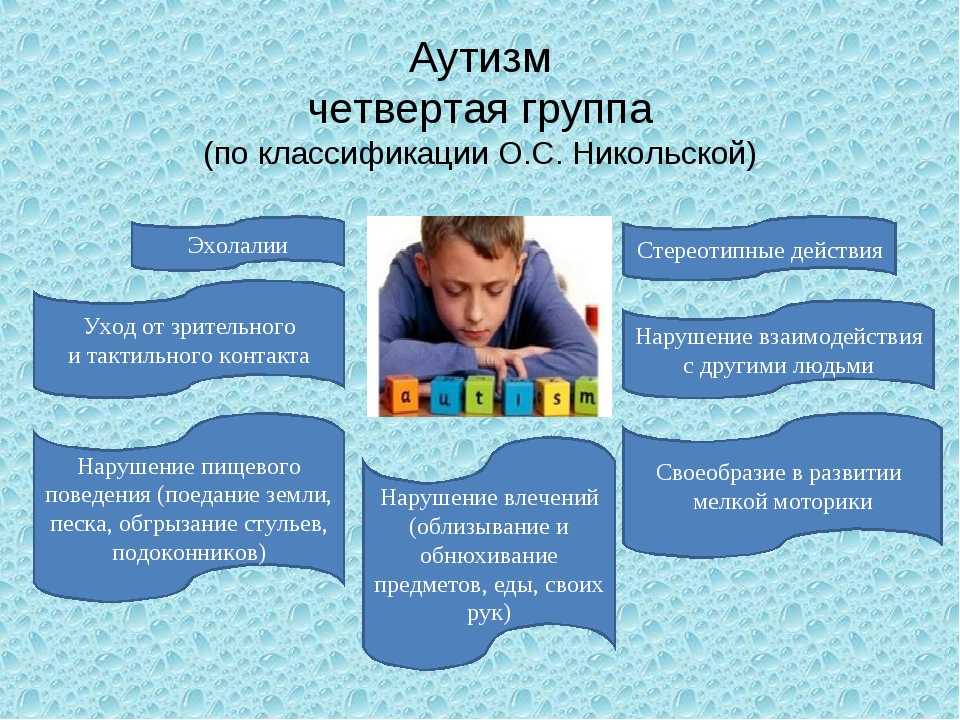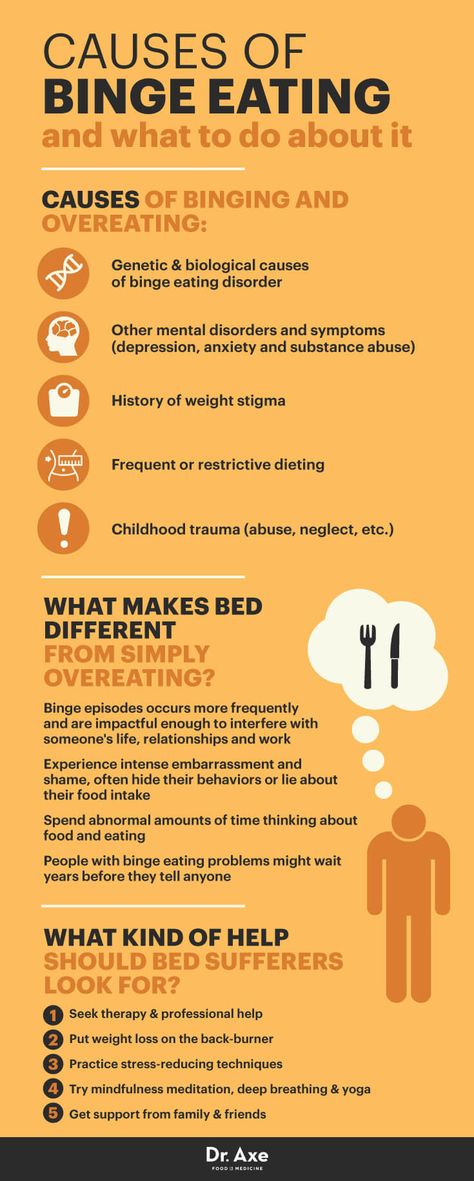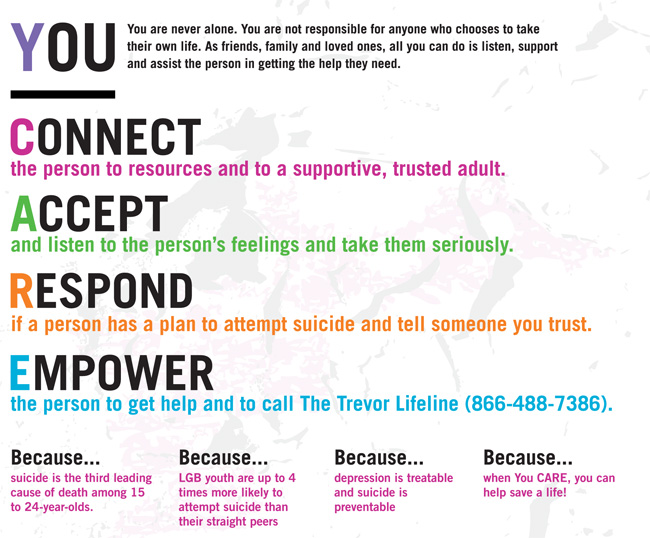The brain and stress
6 Ways Stress Affects Your Brain
The brain is a fascinating and complex organ. It’s the primary control center for our whole body, and it can be affected by stress in many different ways. Stress itself is an important part of life – it helps us prepare for danger or respond to emergencies. But when we’re constantly stressed out, that’s when our brain starts to pay the price. This blog post will explore how stress affects your brain, both positively and negatively, so you can develop strategies to reduce your brain’s vulnerability to its harmful effects.
For starters, it is important to understand how our body processes stress. In the simplest terms, stress is basically the “fight or flight” response to a perceived threat. This activates the amygdala, or “fear center” of the brain, and causes a cascade of events. These include the production of the stress hormone cortisol, an increase in glucose levels, increased heart rate, and an increase in blood flow to the muscles in the arms and legs.
After the threat has passed, then the body will eventually return to normal.
In the case of chronic stress, however, the fear center of the brain is constantly activated, meaning that the body is in a constant state of stress. Cortisol levels are also constantly elevated, which can eventually start to cause problems with digestion, sleeping, and the immune system. Not only that, but when one part of the brain is constantly engaged, it is postulated that the other parts of the brain may not have enough energy to carry out their own functions properly. As a result, here are six ways that stress can affect the brain:
Impairs MemoryOne effect of chronic stress that researchers have observed is memory impairment. Specifically, it has been noted that people who are stressed tend to be more forgetful and less likely to remember specific information. Researchers believe that even minor stress, such as being late to work, can cause you to forget simple things like where your keys are. One study performed on older rats even noted that high levels of cortisol caused short-term memory declines. According to Dr. Kerry Ressler, chief scientific officer at McLean Hospital and professor of psychiatry at Harvard Medical School, “The basic idea is that the brain is shunting its resources because it’s in survival mode, not memory mode”.
One study performed on older rats even noted that high levels of cortisol caused short-term memory declines. According to Dr. Kerry Ressler, chief scientific officer at McLean Hospital and professor of psychiatry at Harvard Medical School, “The basic idea is that the brain is shunting its resources because it’s in survival mode, not memory mode”.
Your brain is composed of both gray matter and white matter. Gray matter is used for decision-making and problem-solving, while white matter is used to connect regions of the brain and communicate information. It has been noted that during times of chronic stress, the myelin sheaths that make up white matter become overproduced, while less gray matter is produced. When this happens, there can be an imbalance in gray and white matter. In some cases, this results in permanent changes to the brain’s structure.
More Susceptible to Mental IllnessAn imbalance between white and gray matter can also play a role in the development of mental illness. The theory is that having excess myelin in certain areas of the brain interferes with the timing and balance of communication. It was also noted that chronic stress can negatively alter hippocampal function. The hippocampus is involved in memory, specifically spatial memory, memory consolidation, and memory transfer.
The theory is that having excess myelin in certain areas of the brain interferes with the timing and balance of communication. It was also noted that chronic stress can negatively alter hippocampal function. The hippocampus is involved in memory, specifically spatial memory, memory consolidation, and memory transfer.
It has been suggested by researchers that chronic stress can even kill new neurons in the brain’s hippocampus. The hippocampus is one of only two locations where neurons are produced. Despite the fact that the formation of new neurons does not seem to be affected, research shows that new neurons produced during periods of stress are more likely to die within a week.
Stress Shrinks the BrainWhile the overall volume of the brain tends to remain about the same, it has been found that chronic stress in otherwise healthy individuals can cause areas of the brain associated with emotions, metabolism, and memory to shrink. Chronic stress also made people more likely to experience brain shrinkage when exposed to intense stressors. This means that people under constant stress may find it harder to deal with future stress.
Chronic stress also made people more likely to experience brain shrinkage when exposed to intense stressors. This means that people under constant stress may find it harder to deal with future stress.
Stress is not all bad for your brain. In fact, moderate stress can actually improve brain performance by strengthening the connection between neurons in the brain. This helps to improve memory and attention span in order to make you more productive overall. This is why some people tend to perform “better under pressure”.
Dr. Kashouty, a diplomate of the American Board of Psychiatry and Neurology (ABPN), practices general neurology with fellowship trained specialization in clinical neurophysiology. Dr. Kashouty finds the form and function of the nerves and muscles the most interesting part of neurology, which is what led him to specialize in neurophysiology with more emphasis on neuromuscular conditions. He treats all neurological diseases, but his main focus is to treat and manage headaches, movement disorders and neuromuscular diseases.
He treats all neurological diseases, but his main focus is to treat and manage headaches, movement disorders and neuromuscular diseases.
Protect your brain from stress
Stress management may reduce health problems linked to stress, which include cognitive problems and a higher risk for Alzheimer's disease and dementia.
Image: © iMrSquid/Getty Images
It's not uncommon to feel disorganized and forgetful when you're under a lot of stress. But over the long term, stress may actually change your brain in ways that affect your memory.
Studies in both animals and people show pretty clearly that stress can affect how the brain functions, says Dr. Kerry Ressler, chief scientific officer at McLean Hospital and professor of psychiatry at Harvard Medical School. Scientists have seen changes in how the brain processes information when people experience either real-life stress or stress manufactured in a research setting. (For the latter, researchers might challenge subjects to perform a difficult task, such as counting backward from the number 1,073 by 13s while being graded.) Either type of stress seems to interfere with cognition, attention, and memory, he says.
(For the latter, researchers might challenge subjects to perform a difficult task, such as counting backward from the number 1,073 by 13s while being graded.) Either type of stress seems to interfere with cognition, attention, and memory, he says.
Stress affects not only memory and many other brain functions, like mood and anxiety, but also promotes inflammation, which adversely affects heart health, says Jill Goldstein, a professor of psychiatry and medicine at Harvard Medical School. Thus, stress has been associated with multiple chronic diseases of the brain and heart. In addition, it can affect men and women differently, she says.
Stress and the brain
To understand why stress affects thinking and memory, it's important to understand a little about how the brain works. Your brain isn't just a single unit, but a group of different parts that perform different tasks, says Dr. Ressler. Researchers believe that when one part of your brain is engaged, the other parts of your brain may not have as much energy to handle their own vital tasks, he says. For example, if you are in a dangerous or emotionally taxing situation, the amygdala (the part of your brain that governs your survival instincts) may take over, leaving the parts of your brain that help to store memories and perform higher-order tasks with less energy and ability to get their own jobs done. "The basic idea is that the brain is shunting its resources because it's in survival mode, not memory mode," says Dr. Ressler. This is why you might be more forgetful when you are under stress or may even experience memory lapses during traumatic events.
For example, if you are in a dangerous or emotionally taxing situation, the amygdala (the part of your brain that governs your survival instincts) may take over, leaving the parts of your brain that help to store memories and perform higher-order tasks with less energy and ability to get their own jobs done. "The basic idea is that the brain is shunting its resources because it's in survival mode, not memory mode," says Dr. Ressler. This is why you might be more forgetful when you are under stress or may even experience memory lapses during traumatic events.
The effect that stress has on the brain and body may also differ depending on when it occurs in the course of someone's life, says Goldstein. Certain hormones, known as gonadal hormones — which are secreted in large amounts during fetal development, puberty, and pregnancy and depleted during menopause — may play a role in how stress affects an individual, says Goldstein. "For example, reductions in the gonadal hormone estradiol during the menopausal transition may change how our brain responds to stress," she says.
Protect yourself from damaging stressTo better cope with stress, consider how you might minimize factors that make it worse. Here are some tips that can help you better manage stress and hopefully prevent some of the damaging effects it could have on your brain.
|
Long-term brain changes
There is evidence that chronic (persistent) stress may actually rewire your brain, says Dr. Ressler. Scientists have learned that animals that experience prolonged stress have less activity in the parts of their brain that handle higher-order tasks — for example, the prefrontal cortex — and more activity in the primitive parts of their brain that are focused on survival, such as the amygdala. It's much like what would happen if you exercised one part of your body and not another. The part that was activated more often would become stronger, and the part that got less attention would get weaker, he says. This is what appears to happen in the brain when it is under continuous stress: it essentially builds up the part of the brain designed to handle threats, and the part of the brain tasked with more complex thought takes a back seat.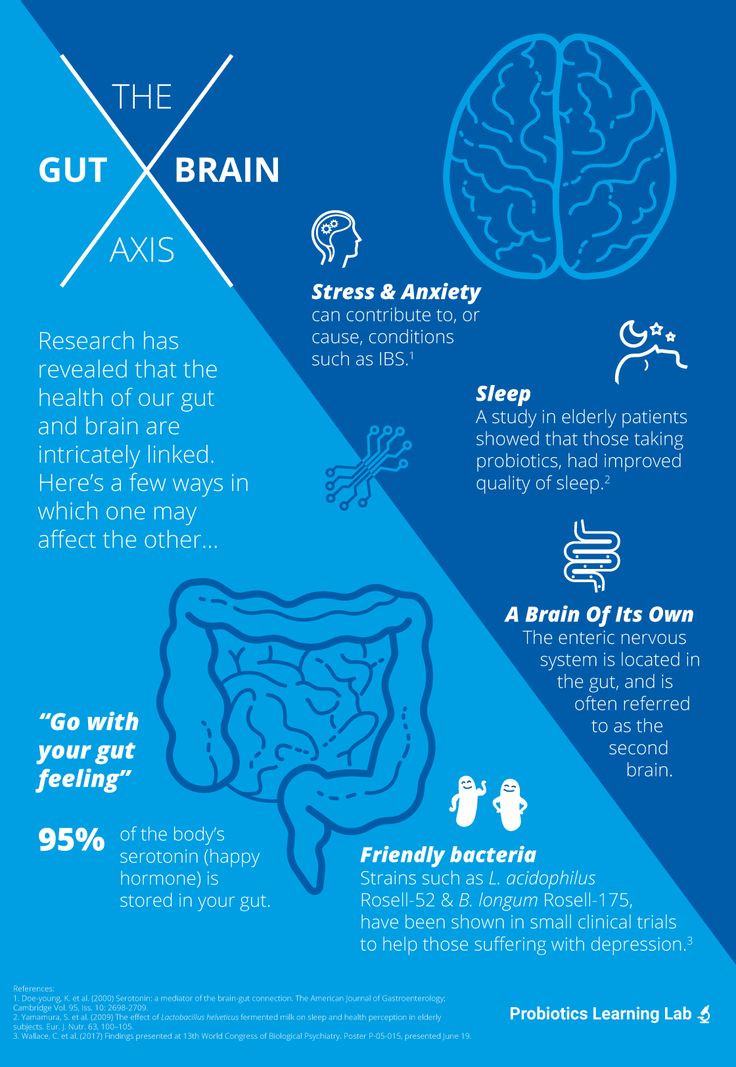
These brain changes may be reversible in some instances, says Dr. Ressler, but may be more difficult to reverse in others, depending on the type and the duration of the stress. While stressful childhood experiences seem to take more of a toll on the developing brain, some research has found that people who demonstrate resilience in the face of past childhood trauma actually appear to have generated new brain mechanisms to compensate. It's thought that these new pathways help to overcome stress-related brain changes that formed earlier in life, he says.
Is all stress created equal?
While the effect of stress on the brain is well documented, it's less clear exactly what type of stress will prove damaging and raise the risk of memory problems later in life. Do brain problems occur when you are under a small amount of stress or only when you experience long-term stress?
"That's a tough question, because stress is a broad term that is used to describe a lot of different things," says Dr. Ressler. The stress you might experience before you take a test is likely very different from the stress of being involved in a car accident or from a prolonged illness. "Certainly, more stress is likely worse, and long-term stress is generally worse than short-term stress," says Dr. Ressler.
Ressler. The stress you might experience before you take a test is likely very different from the stress of being involved in a car accident or from a prolonged illness. "Certainly, more stress is likely worse, and long-term stress is generally worse than short-term stress," says Dr. Ressler.
But there are additional factors that make stress more harmful, he says. In particular:
-
The stress is unpredictable. Animal research shows that animals that could anticipate a stressor — for example, they received a shock after a light turned on — were less stressed than animals that received the same number of shocks randomly. The same is true in humans, says Dr. Ressler. If a person can anticipate stress, it is less damaging than stress that appears to be more random.
-
There is no time limit on the stress. If you are stressed about a presentation at work or an upcoming exam, the stress you are experiencing has an end point when you know you will get relief.
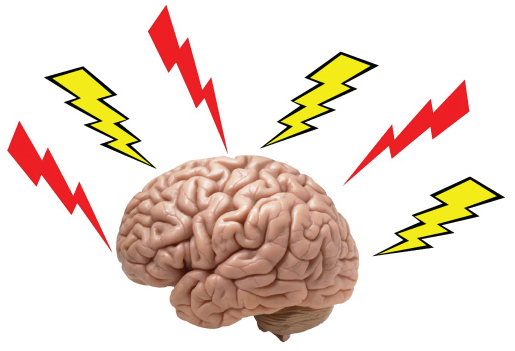 If the stress has no end point — for example, you are chronically stressed about finances — it may be more challenging to cope with.
If the stress has no end point — for example, you are chronically stressed about finances — it may be more challenging to cope with. -
You lack support. If you feel supported during your stress, you are likely to weather it more successfully than if you don't.
How stress affects our brain, or why it is bad to be nervous for a long time
We face stress every day due to deadlines at work, family problems, information noise and other factors. But we are far from always aware of how dangerous it is to health. Stress increases the risk of developing serious diseases and harms all body systems. The brain and cognitive abilities suffer the most: memory, attention, decision-making and planning, logical thinking. Together with Adrian Landry, Director of Educational Content at the Novakid online English school, we are looking into how stress affects cognitive functions and what can help you cope with it. nine0003
Adrian Landry
Director of Educational Content, Novakid Online School of English
Short-term stress
Short-term stress triggers the fight-or-flight response in the body.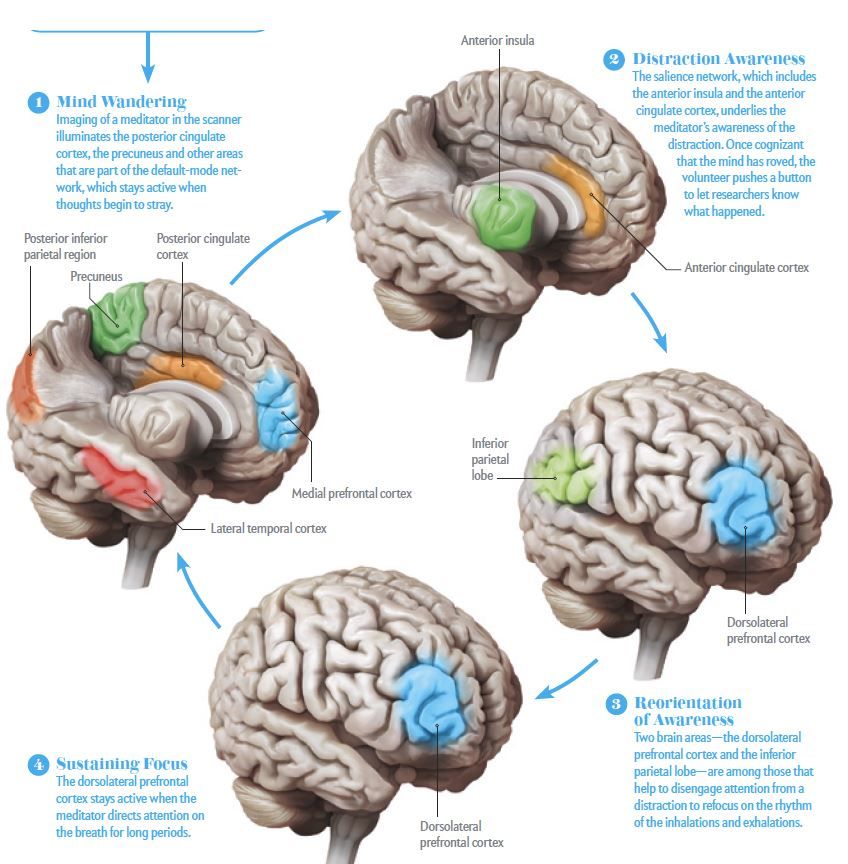 Its mechanism was formed a very long time ago - back in those prehistoric times, when a person had to literally escape from predators. Today, the cause of stress is usually not saber-toothed tigers, but traffic jams or conflicts with others. But the reaction works automatically. nine0009
Its mechanism was formed a very long time ago - back in those prehistoric times, when a person had to literally escape from predators. Today, the cause of stress is usually not saber-toothed tigers, but traffic jams or conflicts with others. But the reaction works automatically. nine0009
The fight-or-flight mechanism in the brain triggers the amygdala, or amygdala, a region of the nervous tissue responsible for detecting threats and feeling anger and fear. Under stress, the amygdala enlarges and commands the body to adapt to the encounter with danger. A person's heart rate increases, digestive processes slow down, the skin turns pale - blood leaves the skin so that in the event of a battle there is no massive blood loss. In addition, visual acuity and hearing are reduced, and attention becomes tunnel-focused exclusively on the source of stress. nine0009
It is commonly believed that short-term stress increases our cognitive abilities. Once in a stressful situation, a person makes every effort to get out of it and, as a result, becomes more collected and concentrated.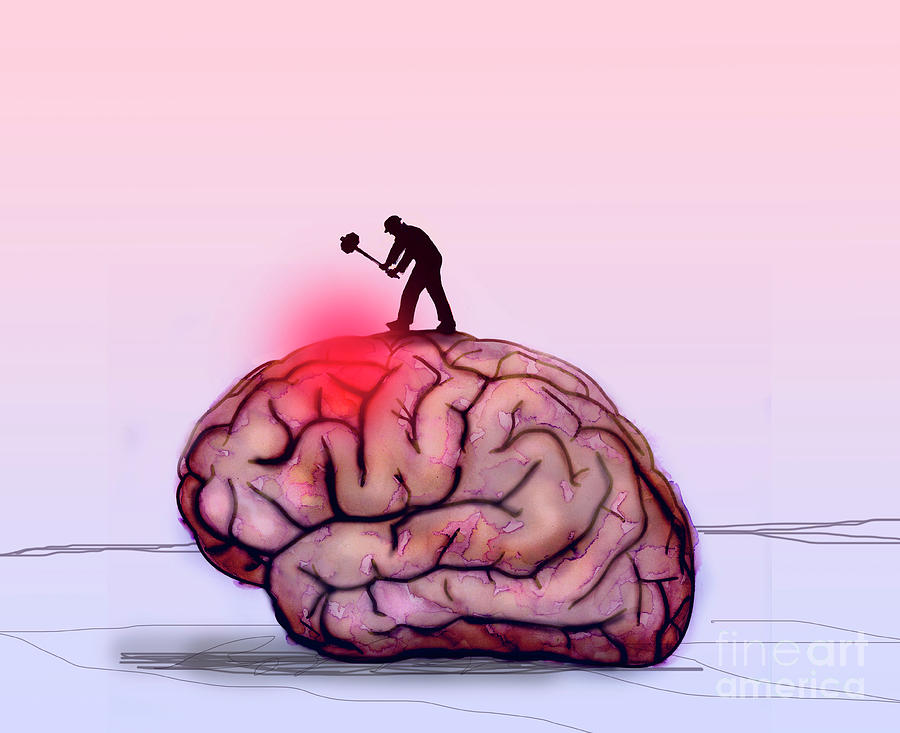 This is true, but only if the stress is directly related to a specific problem.
This is true, but only if the stress is directly related to a specific problem.
Let's say you have to pass a driver's license test. If you're only worried about your test results in the run-up to the tests, but otherwise you're doing well in life, short-term stress really activates your memory and concentration. However, if it’s not the exam itself that makes you nervous, but, say, the prospect of layoffs at work, it will be extremely difficult for you to focus on driving. nine0009
Scientist Dan Ariely in his book Positive Irrationality. How to capitalize on your illogical actions” describes an experiment his team conducted in India. A group of subjects were asked to play a few simple children's puzzle games. Certain bonuses were offered for the victory. The amount of remuneration ranged from modest amounts to very solid ones - equal to the participant's salary for several months. It turned out that the higher the amounts were at stake, the worse the subjects coped with the tasks.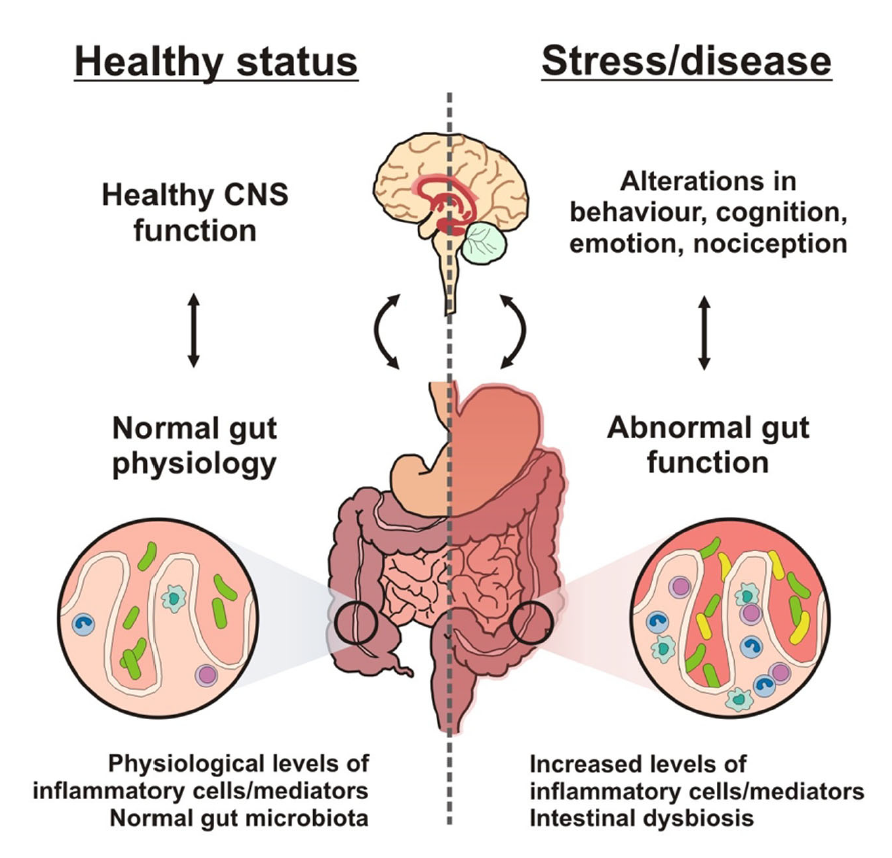 The prospect of a small win did not make people nervous or affect their level of concentration. But the chance to hit the big jackpot brought the body into a stressful state and worsened cognitive abilities. nine0009
The prospect of a small win did not make people nervous or affect their level of concentration. But the chance to hit the big jackpot brought the body into a stressful state and worsened cognitive abilities. nine0009
The fact is that short-term stress turns off the prefrontal cortex of the brain, which is responsible for cognitive abilities. Namely, for memory, planning, logical thinking, the ability to find solutions and set goals. In ordinary life, the prefrontal cortex allows us to function normally, work and learn. But with the “fight or flight” reaction, the need for these abilities in the body simply disappears - work with a specific threat comes to the fore. At this moment, we need cognitive functions in a minimal amount: only those that will help to cope with the source of stress. nine0009
Chronic stress
If the brain can get at least some benefit from a short-term stressful situation, then long-term stress literally destroys it.
Stress increases the production of cortisol. Long-term excess of the concentration of this hormone negatively affects the hippocampus. This part of the brain is responsible for the perception of information, memory and neurogenesis - the formation of new neurons. The hippocampus plays the role of a data processing center: it distributes information between short-term and long-term memory, makes decisions about what knowledge to keep and what not. Under the influence of cortisol, the hippocampus is gradually destroyed. As a result, a person's memory worsens: at first it becomes more difficult to memorize new things, and then to remember already known ones. A decrease in the number of neurons and a slowdown in neurogenesis reduce the ability to learn and master new skills. nine0009
Long-term excess of the concentration of this hormone negatively affects the hippocampus. This part of the brain is responsible for the perception of information, memory and neurogenesis - the formation of new neurons. The hippocampus plays the role of a data processing center: it distributes information between short-term and long-term memory, makes decisions about what knowledge to keep and what not. Under the influence of cortisol, the hippocampus is gradually destroyed. As a result, a person's memory worsens: at first it becomes more difficult to memorize new things, and then to remember already known ones. A decrease in the number of neurons and a slowdown in neurogenesis reduce the ability to learn and master new skills. nine0009
Chronic stress and increased production of cortisol also destroy dendritic junctions, through which information is transmitted between neurons. The number and quality of dendrites also affect our memory capacity and processing speed. The fewer of them, the worse and slower we begin to think.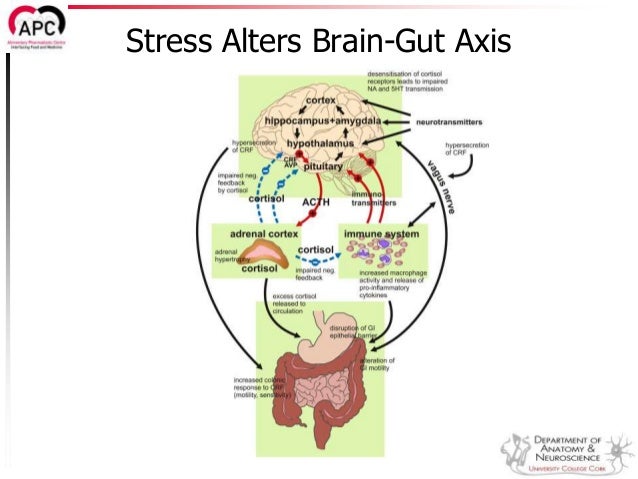 Even simple decisions are difficult for a person: what to wear, what dish to cook for dinner, and so on.
Even simple decisions are difficult for a person: what to wear, what dish to cook for dinner, and so on.
Blame it on the amygdala we talked about earlier. Under chronic stress, it is always in an excited state and sees danger or threat everywhere - even if there are no objective reasons for this. But even worse, the amygdala tries its best to "pull the blanket" over itself and makes us constantly afraid and think about the source of stress. As a result, it becomes more and more difficult to switch to everyday activities. nine0009
Finally, prolonged stress destroys the prefrontal cortex, which is directly responsible for cognitive abilities. In a normal state, its nerve connections are reliably protected by the myelin sheath. It not only protects, but also participates in a chain reaction between neurons at the moments when we think or make decisions. Cortisol thins the myelin sheath and deprives neurons of protection. It becomes more difficult for the brain to get to the necessary information and formulate a command for this or that action. nine0009
nine0009
Can stress be beneficial?
It is believed that life without stress does not exist, and this is true. Normally, during the day, 80% of the time a person should be in a state of calm, 20% should feel a sense of joy and happiness, another 20% should feel stress. The study of scientists from the University of Georgia, conducted as part of the Human Connectome Project, is devoted to the positive effect of moderate stress on the brain.
1200 young people took part in the experiment. They filled out a questionnaire in which they assessed their level of stress and tension. After that, they were offered to take tests to assess cognitive abilities. It turned out that those participants who periodically experienced mild stress in everyday life coped best with the tasks. Those who almost never faced stressful situations had worse results. nine0009
Thus, it can be assumed that a moderate level of stress in everyday life makes us more resistant to severe stressful situations and experiences.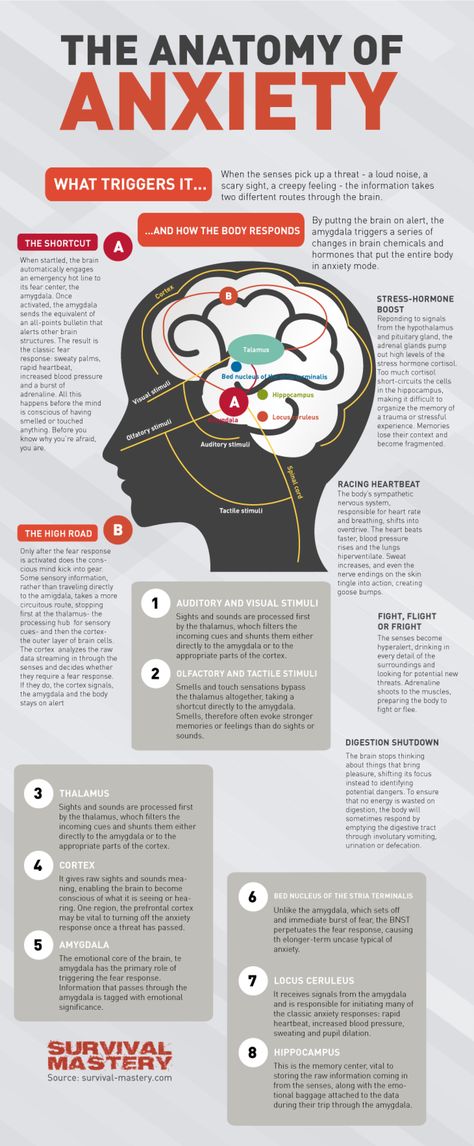 However, it is important to understand that we are talking only about mild short-term stress, which is not capable of seriously harming the brain.
However, it is important to understand that we are talking only about mild short-term stress, which is not capable of seriously harming the brain.
How to reduce stress?
-
Moderate physical activity. Sweating in the gym for several hours a day is not at all necessary. An excellent alternative would be swimming, yoga and even ordinary walks. nine0009
-
Nutrition. Avoiding fast carbohydrates and foods with a high glycemic index will help reduce stress levels. This includes sweets, pastries, soda, and favorite fast food. Such products provoke jumps in blood sugar, which additionally stimulate the brain and bring it into a state of overexcitation.
-
Learning new things. Foreign languages are great here. Although studying under stress seems like something difficult and not very productive, it is a great opportunity to switch the brain. Regularity in classes can be one of the steps to establishing a routine and daily routine. Finally, learning foreign languages stimulates neurogenesis, which means that it can at least partially compensate the brain for neurons lost due to chronic stress.
 nine0009
nine0009 -
Self-monitoring. Stress factors, such as problems at work or information noise, will not disappear on their own. However, we can change our attitude towards them, learn to negotiate with ourselves and turn off the involuntary inclusion of the “fight or flight” reaction. This can be achieved with the help of breathing practices, physical activity, meditation, normalization of the daily routine and diet.
Alexandra Smarakova
Tags
#well-being
#erudition
Brain response to stress and consequences of its influence
Health
- Photo
- Getty Images
We are accustomed to perceive the word "stress" only in a negative light. It seems to many that this is a terrible nerve, covering because of the news, rising prices, shortages of sugar and buckwheat, quarrels with loved ones.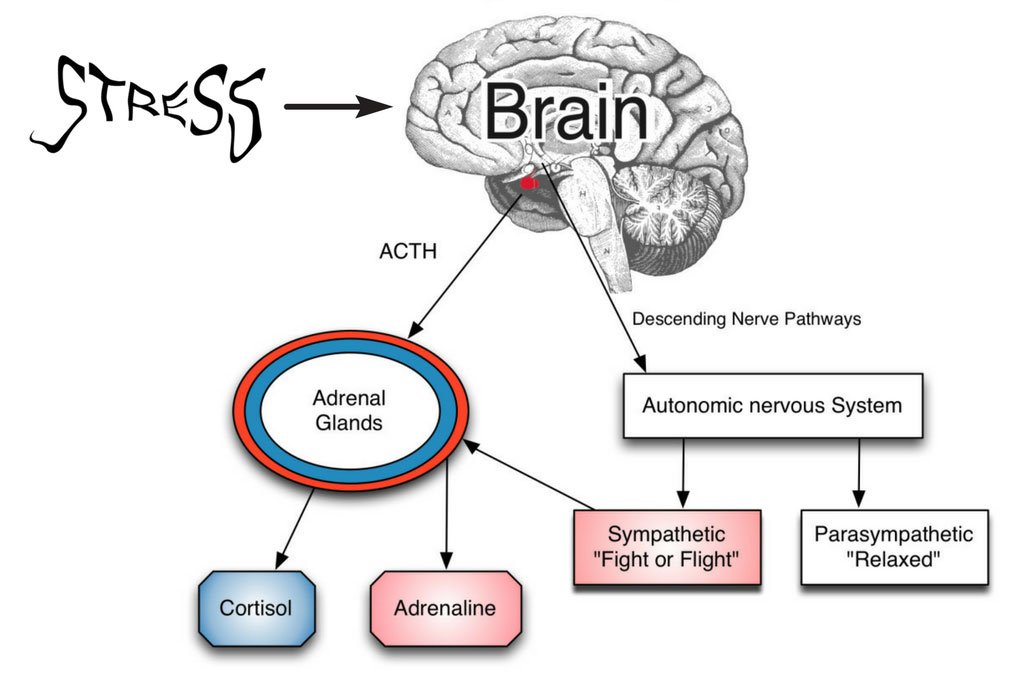 But this is a misunderstanding of stress as a natural process, which is laid down by nature in order to save us.
But this is a misunderstanding of stress as a natural process, which is laid down by nature in order to save us.
In general, stress is a reaction of the whole organism, and not just our emotions. That is, the entire body is involved in the stress response - from head to toe. Moreover, the reaction of the brain to stress is not always in the first place. The key point of stress responses is “come into battle if you are strong, or run away if you are weak.” And the body starts a mechanism that will help us either survive in the battle, or develop such speed, fleeing from danger, that they will not catch up with us. Everything is mobilized - muscles, bones, tendons, nerves and blood vessels. Everything switches to throwing forces into battle (well, or flight). nine0009
At the same time, the cerebral cortex (which thinks, speaks and expresses emotions), digestion and many other organs are not needed yet in this struggle, they are temporarily relegated to the background. And that is why, when stress turns from acute into chronic, permanent, we begin to literally “crumble”.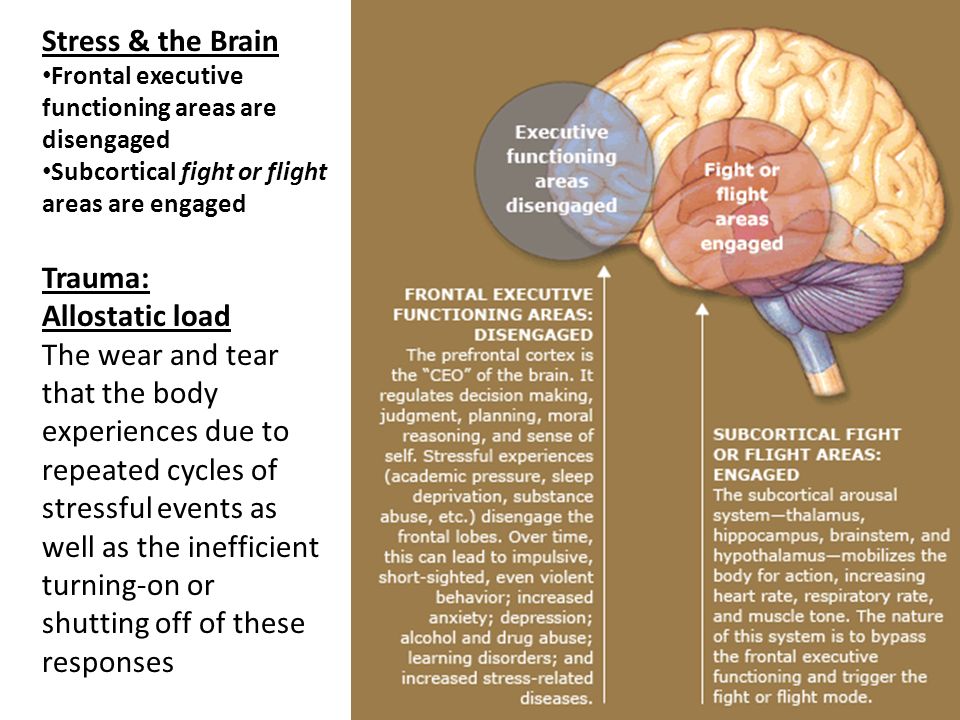 Neurologist Yevgeny Mosin explained why it is impossible to be constantly "mobilized" and how stress destroys our brain.
Neurologist Yevgeny Mosin explained why it is impossible to be constantly "mobilized" and how stress destroys our brain.
neurologist of the highest category
From time immemorial
Stress is an inheritance from ancestors, a reaction formed in the course of evolution. Our ancient ancestors, who needed to catch food escaping from them and at the same time not become food for predators themselves, needed a developed brain and stress responses. nine0009
Yes, speech, emotions, developed social skills and thinking are useful features to organize a mammoth hunt. But when you need to run away from a leopard or fight a hyena, there is no time for talking and thinking.
Need muscle strength and reaction speed. It is these qualities that increase stress.
How to "turn it on"?
It's simple - to scare a lot and turn off the mind, at the level of the subcortex we think faster - this is acute stress. And this is a good reaction, without it we would not have survived. nine0103 The key stress hormone is cortisol, which works in close conjunction with adrenaline and norepinephrine. Once a month or even once a week, such stress is tolerated without much consequence. But if every day your adrenal glands are in a state of tension, work in the "stress" mode, the body literally wears out - you can not constantly be in a state of cocked the trigger. How does prolonged stress affect the brain specifically? Let's figure it out.
And this is a good reaction, without it we would not have survived. nine0103 The key stress hormone is cortisol, which works in close conjunction with adrenaline and norepinephrine. Once a month or even once a week, such stress is tolerated without much consequence. But if every day your adrenal glands are in a state of tension, work in the "stress" mode, the body literally wears out - you can not constantly be in a state of cocked the trigger. How does prolonged stress affect the brain specifically? Let's figure it out.
What happens to the brain during stress
If you constantly live in stress, the body works according to a given program - it constantly mobilizes resources for fight or flight. There is no need to run and fight with anyone. Resources are wasted ineptly, due to constant stress, the heart, blood vessels, nerves, and endocrine glands wear out. And in experiments on animals, it was determined that the brain becomes inflamed during constant stress, neurons begin to die literally by the thousands, and not throughout the entire brain as a whole, but in separate areas.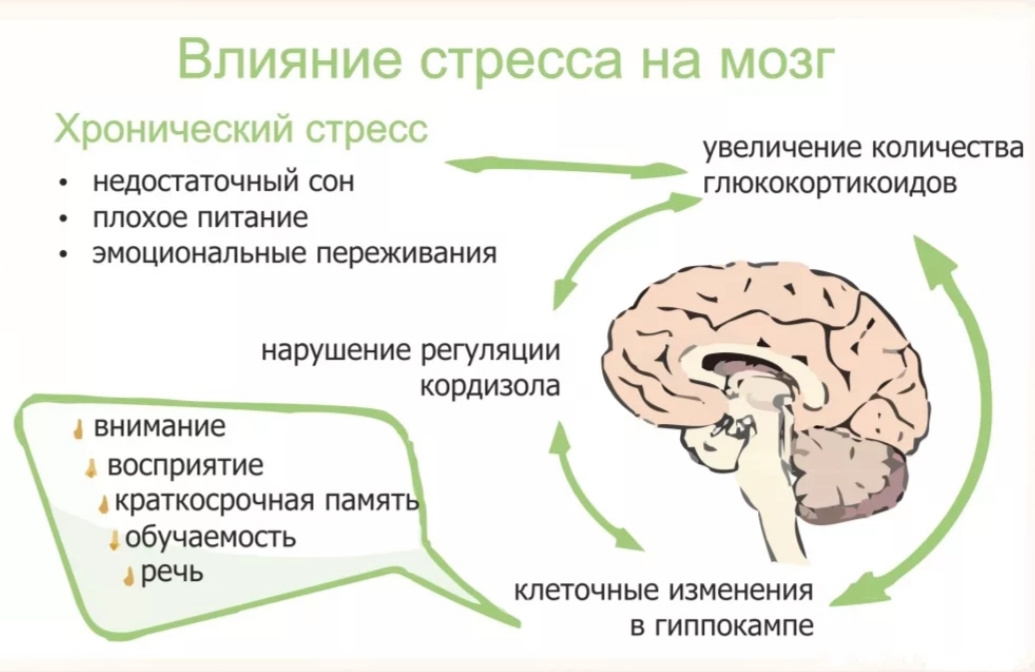
The hippocampus was particularly hard hit, a small area that is responsible for our memory and learning. nine0104 Therefore, if every time you do homework with children, speak to them in a raised voice and under stress, they will not remember anything and will not learn anything! And they are not to blame - this is the brain's reaction to stress.
Nerve cells are being restored! But not under stress
The favorite phrase of Soviet doctors “don't be nervous - nerve cells don't regenerate” has already been refuted. The adult brain is capable of restoring some of the cells, since it was found that the hippocampus contains stem cells that, under normal conditions, can turn into either neurons or cells that surround and nourish them (glia). Now back to which part of the brain suffers from stress the most - yes, the hippocampus. And accordingly, in conditions of stress, our brains "are not updated." Moreover, stress affects brain stem cells in a special way. nine0009
Under constant stress, they die or turn into oligodendrocytes, the cells that produce the white matter that coats the nerves and fills the brain from the inside.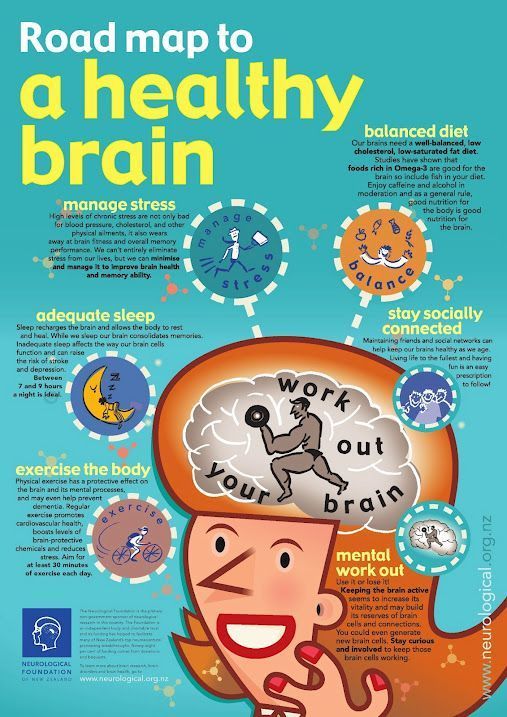 In some people who have experienced severe stress, such as PTSD, in some areas of the brain, white matter literally forms lumps and lumps.
In some people who have experienced severe stress, such as PTSD, in some areas of the brain, white matter literally forms lumps and lumps.
There are also other weak areas
Constant stress also affects another area of the brain - the amygdala or amygdala. It is responsible for our emotions and helps us critically evaluate external threats. nine0103 Under stress, the amygdala literally shrinks, some of the cells stop working, which drives people into a state of depression.
The frontal lobes also suffer from an excess of cortisol in the blood. They are responsible for the formation of short-term memory, human attention and activity planning, control over their emotions and making correct and responsible decisions. If you are constantly under stress, your attention will naturally be scattered, you will not be able to really bring a single task to the end. By the way, these natural reactions also explain the fact why under stress it is impossible to make responsible decisions - it is simply physically impossible.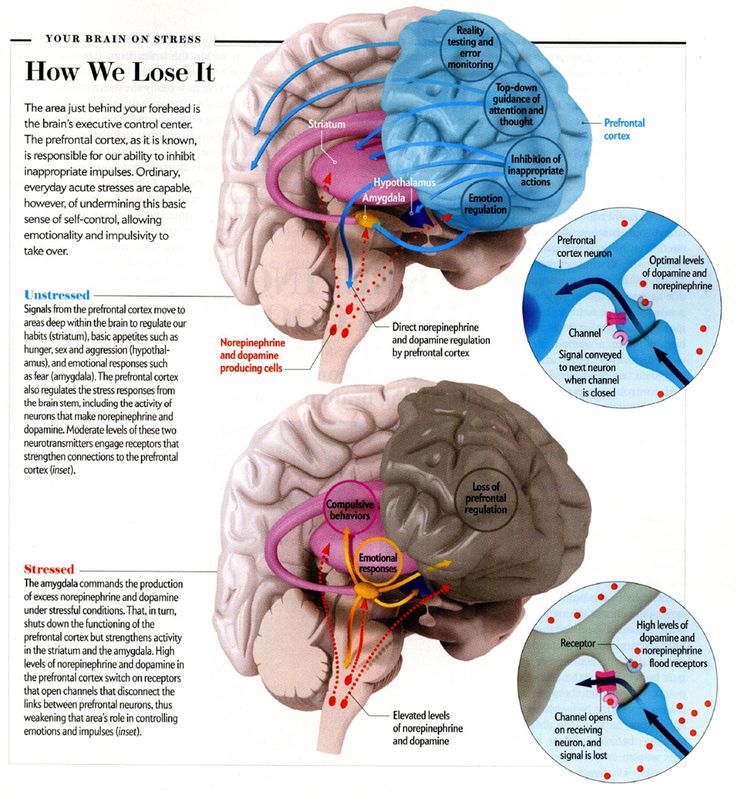
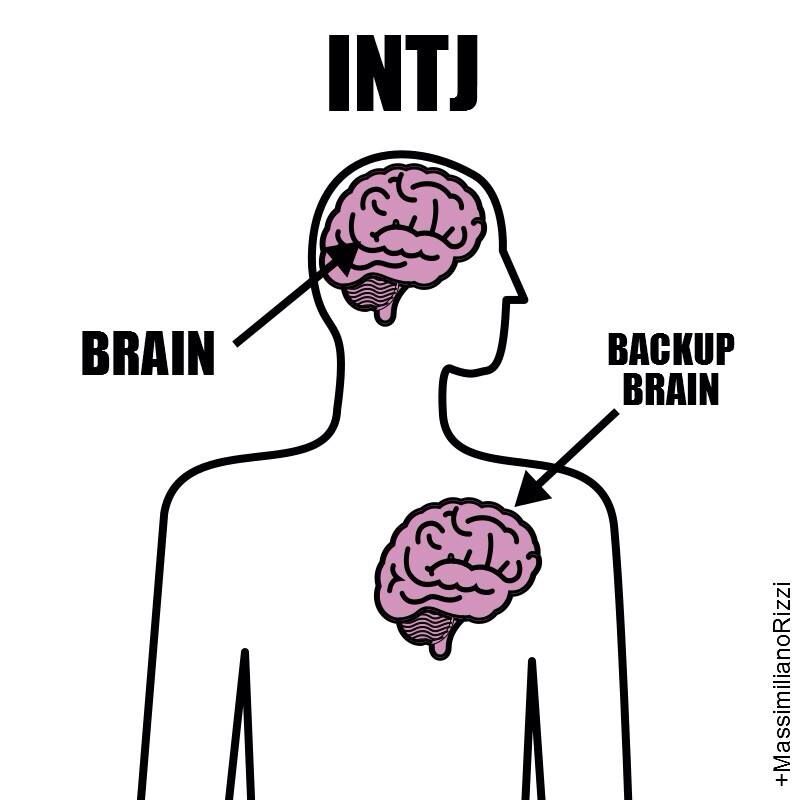
 Ressler. So, rather than striving for no stress, strive for healthier responses to stress.
Ressler. So, rather than striving for no stress, strive for healthier responses to stress.
